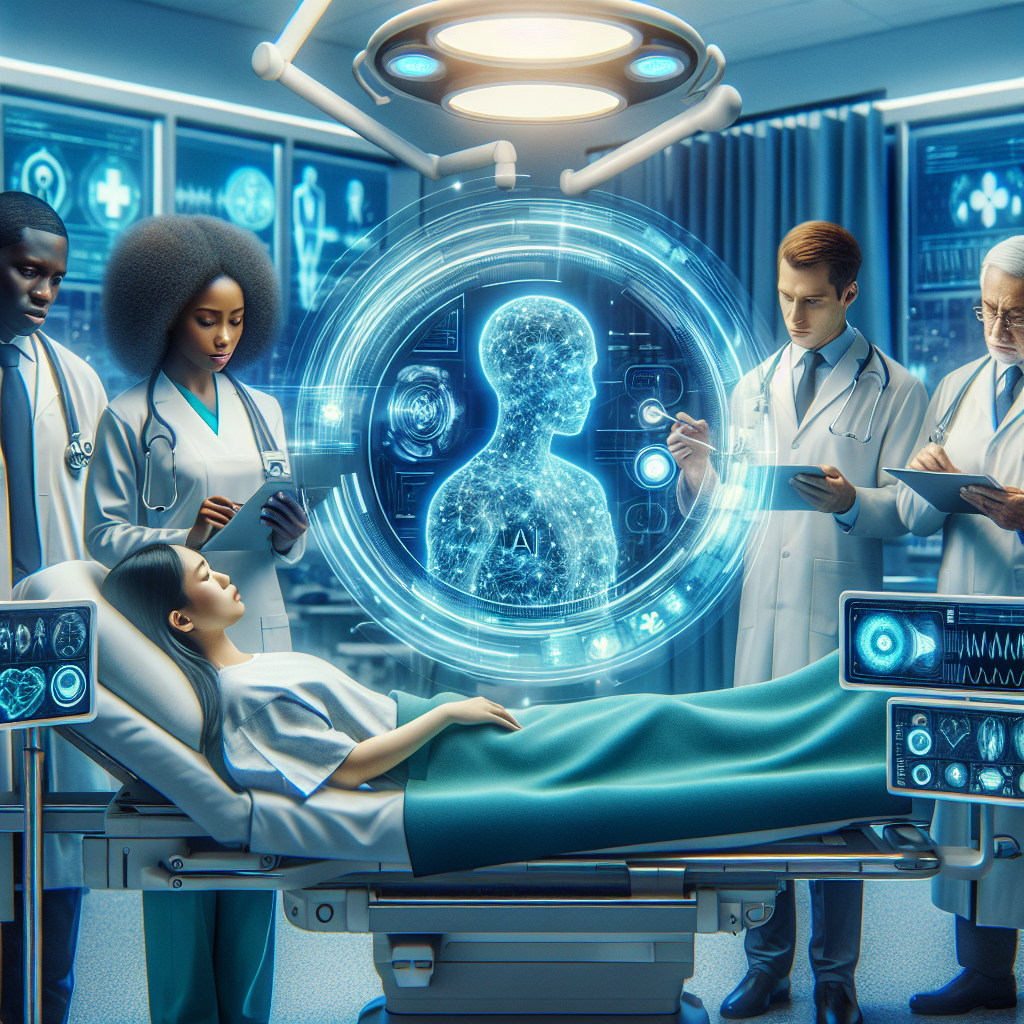AGI in Healthcare: How AI is Revolutionizing Patient Care
Artificial General Intelligence (AGI) is rapidly transforming the healthcare industry, offering innovative solutions to improve patient care, diagnosis accuracy, treatment effectiveness, and operational efficiency. AI technologies are revolutionizing the way healthcare providers deliver services, enabling them to make informed decisions based on data-driven insights and predictive analytics. From robotic surgery to personalized treatment plans, AGI is reshaping the future of healthcare.
The Role of AGI in Healthcare
AGI refers to the ability of a machine to perform any intellectual task that a human can do. In the context of healthcare, AGI systems are designed to replicate human intelligence and decision-making processes to improve patient outcomes. These systems can process vast amounts of data, identify patterns, and make predictions with a level of accuracy that surpasses human capabilities.
One of the key applications of AGI in healthcare is in diagnostics. AI-powered systems can analyze medical images, such as X-rays, MRIs, and CT scans, to detect abnormalities and identify potential diseases. These systems can help radiologists and other healthcare professionals make faster and more accurate diagnoses, leading to early detection and treatment of illnesses.
AGI is also being used to develop personalized treatment plans for patients. By analyzing genetic data, medical history, and other relevant information, AI systems can recommend the most effective and tailored treatment options for each individual. This approach not only improves patient outcomes but also minimizes the risk of adverse reactions to medication.
In addition to diagnostics and treatment planning, AGI is being used to streamline administrative processes in healthcare facilities. AI-powered systems can automate tasks such as scheduling appointments, processing insurance claims, and managing electronic health records. By reducing the administrative burden on healthcare providers, AGI allows them to focus more on patient care and improve overall efficiency.
The Benefits of AGI in Healthcare
The integration of AGI into healthcare systems offers a wide range of benefits for patients, healthcare providers, and the industry as a whole. Some of the key advantages of using AI in healthcare include:
1. Improved Diagnosis Accuracy: AI systems can analyze medical images and other data with a level of accuracy that surpasses human capabilities, leading to faster and more accurate diagnoses.
2. Personalized Treatment Plans: AGI can analyze patient data to recommend tailored treatment options that are more effective and have fewer side effects.
3. Enhanced Patient Care: By automating administrative tasks, AGI allows healthcare providers to spend more time with patients and deliver better quality care.
4. Cost Savings: AI technology can help healthcare facilities reduce operational costs, improve efficiency, and optimize resource utilization.
5. Predictive Analytics: AGI systems can analyze patient data to predict future health outcomes, allowing healthcare providers to intervene earlier and prevent complications.
6. Remote Monitoring: AI-powered devices can monitor patients remotely and alert healthcare providers to potential issues, enabling timely interventions and reducing hospital readmissions.
FAQs
Q: How does AGI improve patient outcomes in healthcare?
A: AGI systems can analyze vast amounts of patient data to identify patterns, detect abnormalities, and recommend personalized treatment plans, leading to improved patient outcomes and better quality care.
Q: Are there any privacy concerns associated with using AGI in healthcare?
A: Privacy concerns are a valid consideration when using AI in healthcare, as patient data is sensitive and must be protected. Healthcare providers must ensure that adequate security measures are in place to safeguard patient information.
Q: Can AGI replace human healthcare providers?
A: While AI technology can automate certain tasks and assist healthcare providers in decision-making, it cannot replace the human touch and empathy that are essential in patient care. AGI is meant to enhance, not replace, the role of healthcare professionals.
Q: How can healthcare providers implement AGI in their practice?
A: Healthcare providers can implement AGI by investing in AI technology, training their staff on how to use it effectively, and ensuring that data is collected and analyzed in a secure and ethical manner.
Q: What are some of the challenges associated with using AGI in healthcare?
A: Some of the challenges of using AGI in healthcare include concerns about data privacy and security, the need for regulatory oversight, and potential biases in AI algorithms. Healthcare providers must address these challenges to ensure the safe and effective implementation of AI technology.
In conclusion, AGI is revolutionizing patient care in the healthcare industry by offering innovative solutions to improve diagnosis accuracy, treatment effectiveness, and operational efficiency. By leveraging AI technology, healthcare providers can deliver personalized care, enhance patient outcomes, and optimize resource utilization. As the use of AGI continues to evolve, it is essential for healthcare providers to stay informed about the latest developments and best practices in AI implementation to ensure the safe and effective use of AI in patient care.

